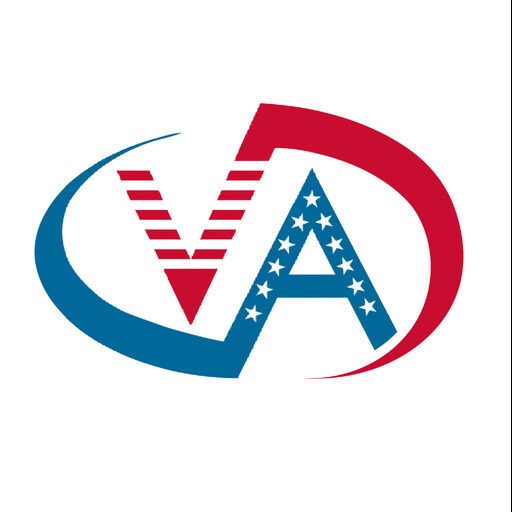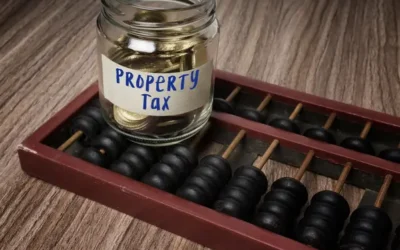Surviving spouses of 100% disabled Veterans may qualify for property tax exemptions that significantly reduce or eliminate their tax burden.
These benefits vary by state, with some offering full exemptions on primary residences and others offering partial relief. Eligibility typically requires that the spouse remains unmarried and resides in the home.
Applicants must provide documentation such as VA award letters and marriage certificates. Several states allow exemption transfer when relocating. Additional benefits like survivor pensions or DIC may also apply.
Let’s outline how exemptions work, state-specific rules, and how to apply effectively to receive the maximum benefit.
Why Property Tax Exemptions Exist for Surviving Spouses
Property taxes can be a heavy load, especially for those on a fixed income. For surviving spouses of 100% disabled Veterans, these exemptions are a lifeline, designed to honor the sacrifices of Veterans and their families.
They reduce or eliminate the property tax bill on your primary residence, freeing up funds for other essentials like healthcare, utilities, or home maintenance.
But navigating the rules can feel like wading through a maze. Each state has its own criteria, and some counties add their own twists. Understanding the basics is the first step to claiming what’s rightfully yours.
How Do Property Tax Exemptions Work?
VA property tax exemptions lower the taxable value of your home, which directly reduces your tax bill. For example, if your home is valued at $200,000 and you qualify for a $50,000 exemption, you’re taxed on $150,000 instead. Some states offer a full exemption, meaning no property taxes at all on your primary residence. For surviving spouses, eligibility often hinges on the Veteran’s 100% disability rating, your marital status, and whether you still live in the home as your primary residence.
- Veteran’s Disability Rating: The Veteran must have had a 100% service-connected, permanent, and total disability rating from the VA, or be rated 100% due to individual unemployability (TDIU).
- Surviving Spouse Criteria: You must be the unremarried surviving spouse of the Veteran, and the home must be your primary residence.
- Application Process: You’ll need to submit documentation, like a VA award letter or disability rating certification, to your county tax assessor’s office.
- State Variations: Some states offer full exemptions, while others provide partial reductions. A few allow the exemption to transfer to a new home if you move, but rules differ.
For a deeper understanding, check out the U.S. Department of Veterans Affairs website for details on disability ratings and benefits.
Which States Offer Full Property Tax Exemptions?
At least 20 states provide full property tax exemptions for surviving spouses of 100% disabled Veterans, though conditions like residency, remarriage status, and property ownership apply. Below is a table summarizing some key states offering full exemptions:
| State | Exemption Details | Eligibility Notes |
|---|---|---|
| Alabama | Full exemption on primary residence, up to 160 acres. | Surviving spouse must not remarry. |
| Florida | Full exemption if Veteran was a permanent resident of Florida on January 1. | Exemption carries over to spouse until remarriage or sale. Florida VA |
| Texas | Full exemption on homestead’s total appraised value. | Requires VA confirmation of 100% disability. Texas Comptroller |
| Virginia | Full exemption, transferable to a new residence. | No remarriage; effective from January 1, 2011. Virginia DVS |
| Illinois | Full exemption for 70%+ disability; surviving spouses of KIA Veterans also qualify. | File annually with county assessor. |
Not all states are as generous. Some, like California, offer partial exemptions based on income, while others, like Minnesota, provide a market value exclusion up to $300,000. Always contact your local county assessor’s office to confirm what’s available in your area, as local rules can vary.
Eligibility Requirements for Surviving Spouses
To qualify, you’ll need to meet specific criteria, which generally include:
- Marital Status: You must be the unremarried surviving spouse of a Veteran who had a 100% permanent and total disability rating or was deemed unemployable by the VA.
- Residency: The property must be your primary residence, and in some states, the Veteran needed to be a resident at the time of death.
- Documentation: You’ll typically need a VA Summary of Benefits letter, a marriage certificate (if names differ), and sometimes a death certificate.
- Timing: Some states, like Maryland, allow applications at any time, while others have deadlines, such as April 30 in Texas.
For example, in Texas, the exemption applies to the total appraised value of the homestead under Tax Code Section 11.131, but you must provide proof of the Veteran’s 100% disability rating. If you move, the exemption may transfer, but it’s limited to the amount you received on your previous home. Check the Texas Veterans Commission for detailed requirements.
How to Apply for a Property Tax Exemption
Applying for a property tax exemption isn’t always straightforward, but breaking it down into steps can make it manageable:
- Confirm Eligibility: Verify the Veteran’s 100% disability rating through VA records. Contact the VA at 1-800-827-1000 or visit va.gov.
- Gather Documents: Collect the VA award letter, marriage certificate, and proof of residency. Some states may require a death certificate or additional forms.
- Contact Your County Assessor: Find your local tax assessor’s office through your state’s Department of Revenue website (e.g., the Texas Comptroller’s County Directory). They’ll provide the specific application form (e.g., Form 50-114 in Texas).
- Submit the Application: File by the deadline, which varies by state. Some allow late applications.
- Follow Up: After submission, confirm approval and check how the exemption will be applied to your tax bill.
State-Specific Nuances and Pitfalls to Avoid
Each state has quirks that can trip you up. For instance:
- Florida: Must be a permanent resident on Jan 1; exemption may transfer.
- Virginia: Exemption is portable if you don’t remarry.
- California: Offers a basic or low-income exemption; applies to spouses even if Veteran didn’t qualify in life.
A common mistake is assuming the exemption applies automatically. You must apply, often annually, and report changes like remarriage or moving. Missing deadlines or failing to provide complete documentation can delay or deny your exemption.
Partial Exemptions and Other Benefits
If you’re in a state without a full exemption, you might still qualify for partial relief. Here’s a table of states with partial exemptions:
| State | Exemption Amount | Key Conditions |
|---|---|---|
| California | Up to $254,656 (low-income) | Income must be below $72,335; applies to surviving spouses. |
| Minnesota | Up to $300,000 market value exclusion | Must have homestead classification; surviving spouses need DIC benefits. |
| North Carolina | First $45,000 of assessed value | Veteran or spouse must meet specific disability criteria. |
| Idaho | Up to $1,320 reduction | Requires 100% disability and income/residency rules. |
Some states also offer additional benefits, like vehicle tax exemptions in Virginia or grocery tax credits in Idaho for surviving spouses. Always check with your county assessor for local credits or programs, as these can add up.
Common Questions About Disabled Veteran Property Tax Exemptions
1. Can I qualify if my spouse wasn’t receiving the exemption before they passed?
Yes, in many states like California, surviving spouses can qualify even if the Veteran didn’t receive the exemption during their lifetime, as long as the Veteran had a 100% service-connected disability or died from a service-connected condition.
2. What happens if I remarry?
In most states, remarriage disqualifies you from the exemption. However, in states like Arkansas, if the remarriage ends, the exemption can be reinstated.
3. Can I transfer the exemption to a new home?
Some states, like Virginia and Texas, allow the exemption to transfer to a new primary residence, but the amount may be limited to the previous home’s exemption value.
4. What if my home was donated by a charity?
If the home was donated by a charitable organization, you may still qualify for an exemption under Texas Tax Code Section 11.132, provided all other eligibility requirements are met.
5. Do I need to reapply every year?
It depends on the state. Maryland doesn’t require annual reapplication unless circumstances change, but Illinois requires annual filing.
6. What happens if I move to a new home?
Surviving spouses may transfer the dollar amount of the exemption received on their prior homestead to a new primary residence, subject to state rules.
7. Can I apply if the home is in a trust?
Yes, in states like Virginia, property held in a revocable or irrevocable trust may qualify if you have a life estate or continuing right of use.
8. How do I know if my county offers extra exemptions?
Some counties offer supplemental exemptions. Visit TexVet.org for county-specific details in Texas.
9. Can I get an exemption on a second home?
No, exemptions apply only to your primary residence, not vacation homes or investment properties.
10. Can I get help with my application?
Yes! Call 800-252-VETS or email info@tvc.texas.gov for support, or visit the Texas Veterans Commission for resources and assistance.
Maximizing Your Benefits as a Surviving Spouse
Beyond property tax exemptions, surviving spouses may qualify for other VA benefits, like Dependency and Indemnity Compensation (DIC) or survivor pensions. These can provide additional financial support. Reach out to your county Veterans Service Officer or visit va.gov to explore all available benefits. Joining local Veteran support groups can also connect you with others who’ve navigated the process, offering tips and emotional support.
Taking the Next Steps
If you think you qualify, don’t wait—contact your county tax assessor’s office today. Gather your documents, confirm deadlines, and submit your application.
The savings can be substantial, and every dollar counts when you’re managing a household on your own. If you’re unsure about eligibility or need help, a Veterans Service Officer can be a game-changer. They’re trained to guide you through the red tape.
Owning a home as a surviving spouse comes with enough challenges. Property tax exemptions are one way to ease the burden and honor your spouse’s service. By understanding your state’s rules and acting promptly, you can secure the financial relief you deserve.

The VA Loan Network Editorial Team is comprised of dedicated mortgage specialists and financial writers committed to providing veterans and service members with accurate, up-to-date information on VA loan benefits, eligibility, and the home-buying process.







